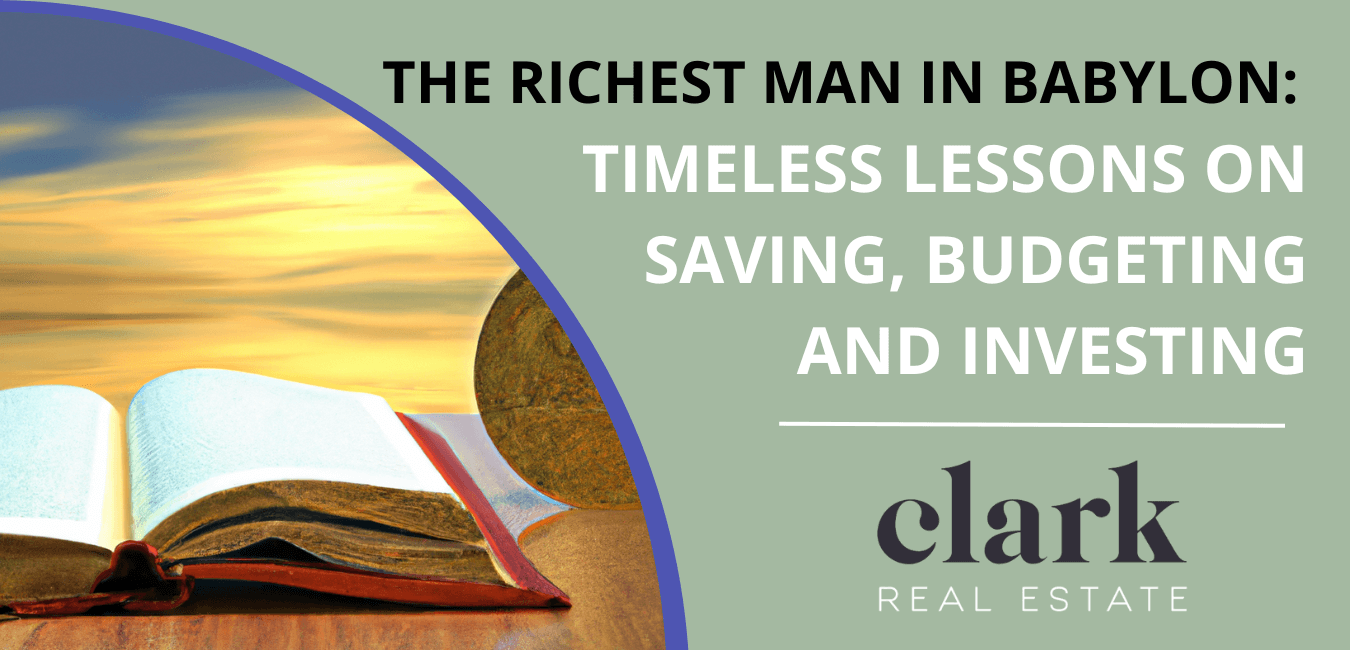
In the realm of personal finance literature, few books have stood the test of time quite like “The Richest Man in Babylon” by George S. Clason. Published nearly a century ago, this timeless classic continues to captivate readers with its practical wisdom and valuable insights on wealth accumulation, financial planning, and the art of saving. In this blog post, we will delve into the key teachings of this influential book and explore how its principles can help us develop effective saving strategies and budgets for a prosperous future.
- Pay Yourself First: One of the fundamental lessons from “The Richest Man in Babylon” is the importance of paying yourself first. The book emphasizes that saving a portion of your income before any other expenses should become a lifelong habit. By committing to setting aside a fixed percentage of your earnings (10%-15% of earnings is a great start), you can build a solid foundation for financial security and wealth creation.
- Live Within Your Means: Living within your means is a vital aspect of successful money management. The book stresses the significance of controlling expenses and avoiding unnecessary debt. By consciously assessing your needs versus wants and making prudent choices, you can avoid the trap of overspending, maintain a balanced budget, and cultivate a habit of disciplined saving.
- Make Your Money Work for You: “The Richest Man in Babylon” highlights the power of investing and making your money work for you. The book encourages readers to seek out opportunities for growth and passive income generation. By diversifying investments wisely and harnessing the potential of compound interest, you can accelerate your wealth accumulation and pave the way for a financially prosperous future.
- Budgeting: The Roadmap to Financial Success: A crucial aspect of effective money management is budgeting. “The Richest Man in Babylon” emphasizes the need to create a budget that aligns with your financial goals. By tracking income and expenses, setting realistic saving targets, and monitoring progress, you can gain control over your finances and make informed decisions about spending and saving.
- Practice Patience and Delayed Gratification: Delayed gratification is a key principle advocated by the book. It teaches us that by exercising patience and resisting impulsive purchases, we can redirect funds towards long-term financial goals. The ability to distinguish between immediate desires and future needs is an essential skill for successful money management.
- Seek Knowledge and Learn from Others: Continuous learning is a theme that resonates throughout “The Richest Man in Babylon.” The book underscores the importance of acquiring financial knowledge and seeking guidance from experienced individuals. By investing time in self-education, attending seminars, or seeking advice from trusted experts, you can enhance your financial literacy and make informed decisions about saving and budgeting.
Conclusion: “The Richest Man in Babylon” is a timeless masterpiece that offers valuable insights into saving, budgeting, and overall financial management. Its principles have withstood the test of time and continue to resonate with readers across generations. By adopting the lessons from this book and implementing them in our lives, we can pave the way for a financially secure future. So, let us embark on this journey of wealth creation, one step at a time, as we strive to become the architects of our financial destinies.

